detail profile lee lasses white
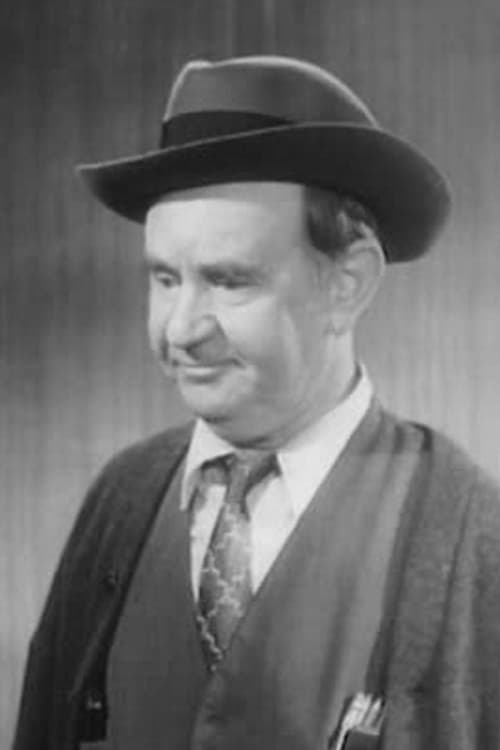
Lee 'Lasses' White
Lee White
atau dikenal sebagai
Riwayat Hidup
Leroy Robert White (August 28, 1888 – December 16, 1949), better known as Lee "Lasses" White or Leroy (sometimes Le Roy or Lee Roy) "Lasses" White, was an American vaudeville pianist, songwriter and entertainer who became an actor of the stage, screen and radio.
He became famous doing minstrel shows during the early part of the 1900s, and wrote one of the first copyrighted twelve-bar blues, "Nigger Blues".
After spending some time on radio, White entered the film industry in the late 1930s.
During his eleven-year career he appeared in over 70 films.
Info Pribadi
Peran Yang Di Mainkan Lee 'Lasses' White
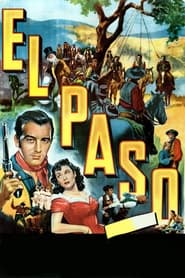 Exconfederate officer Clay Fletcher jumps at...
Exconfederate officer Clay Fletcher jumps at...El Paso 1949
Ex-confederate officer Clay Fletcher jumps at the chance to reunite with his once lady-friend, Susan Jeffers, when his father, Judge Fletcher, sends him on an errand to El Paso, Texas to get the signature of Susan's father, Judge Jeffers, on a legal document. Once there he finds the judge has become a drunk and a laughing stock, doing the bidding of local magnate Bert Donner and his running dog, Sheriff La Farge. Just as Clay starts straightening out the town's problems, events occur which force him to abandon the legal system and instead adopt the murderous tactics of a vigilante.
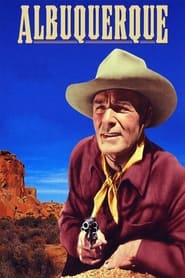 Cole Armin comes to Albuquerque to...
Cole Armin comes to Albuquerque to...Albuquerque 1948
Cole Armin comes to Albuquerque to work for his uncle, John Armin, a despotic and hard-hearted czar who operates an ore-hauling freight line, and whose goal is to eliminate a competing line run by Ted Wallace and his sister Celia. Cole tires of his uncle's heavy-handed tactics and switches over to the Wallace side. Lety Tyler, an agent hired by the uncle, also switches over by warning Cole and Ted of a trap set for them by the uncle and his henchman.
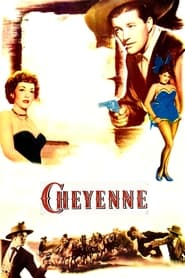 Slick gambler James Wylie is apprehended...
Slick gambler James Wylie is apprehended...Cheyenne 1947
Slick gambler James Wylie is apprehended by the law and given the option to forgo a prison sentence if he poses as a bandit. His mission is to uncover the identity of the Poet, a notorious outlaw who has been holding up bank-owned stagecoaches and leaving verses at the crime scenes to taunt the authorities. James finds time to woo the Poet's lovely wife, Ann, who initially cold-shoulders him. But, as a romance develops, they partner up to find the robber.
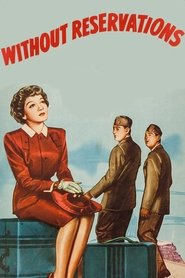 Kit Madden is traveling to Hollywood...
Kit Madden is traveling to Hollywood...Without Reservations 1946
Kit Madden is traveling to Hollywood, where her best-selling novel is to be filmed. Aboard the train, she encounters Marines Rusty and Dink, who don't know she is the author of the famous book, and who don't think much of the ideas it proposes. She and Rusty are greatly attracted, but she doesn't know how to deal with his disdain for the book's author.
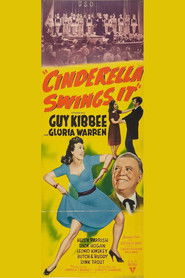 Scattergood Baines Coldrivers most popular citizen...
Scattergood Baines Coldrivers most popular citizen...Cinderella Swings It 1943
Scattergood Baines, Coldriver's most popular citizen, neighborly counselor and sly old fox, entices a Broadway producer to Coldriver to see the gay musical extravaganza Baines is staging for the benefit of the U.S.O. He is also promoting the singing career of his latest local protégé, Betty Palmer. There are a few problems but the Sage of Coldriver manages to keep pulling the right strings.
 Steve Bell Tommy Pig Ape and...
Steve Bell Tommy Pig Ape and...Mug Town 1942
Steve Bell, Tommy, Pig, Ape, and String are run of town. Steve, while hopping a freight card and trying to avoid the brakeman, is killed. The boys meet Steve's mother, Alice Bell and Tommy is given a job in the storage garage which she owns jointly with Mack Steward. Steve's brother Don Bell is working with some gangsters by tipping them off on valuable merchandise that can be hijacked. Pig, Ape and String overhear Don's plans to use Tommy as the fall guy in the next hijacking.
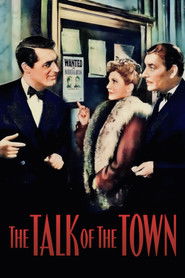 Hilarity ensues when a falsely accused...
Hilarity ensues when a falsely accused...The Talk of the Town 1942
Hilarity ensues when a falsely accused fugitive from justice hides at the house of his childhood friend, which she has recently rented to a high-principled law teacher.
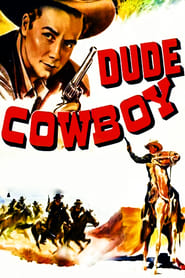 A Nevada rancher goes undercover for...
A Nevada rancher goes undercover for...Dude Cowboy 1941
A Nevada rancher goes undercover for the U. S. Secret Service to help capture a gang of counterfeiters. Director David Howard's 1941 B-western stars Tim Holt, Marjorie Reynolds, Lee White, Eddie Kane, Ray Whitley, Helen Holmes, Glenn Strange, Byron Foulger, Eddie Dew, Tom London and Hank Worden.
 Originally written as a stage vehicle...
Originally written as a stage vehicle...The Roundup 1941
Originally written as a stage vehicle for corpulent character actor Macklyn Arbuckle, Ernest Day's The Roundup was first filmed in 1920 with Fatty Arbuckle (no relation) in the lead. By the time the film was remade in 1941, Arbuckle's character, a roly-poly frontier sheriff named Slim (!), was refashioned as a supporting role, with Jack Benny's radio announcer Don Wilson essaying the part. The plot, however, remained fairly intact: Upon hearing that her fiance Greg (Preston Foster) has been killed, Janet (Patricia Morison) agrees to marry rancher Steve (Richard Dix) on the rebound. On the day of the wedding, who should show up but Greg, determined to raise as much Hell as humanly possible
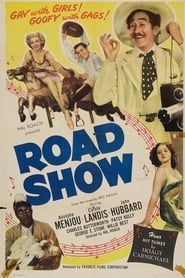 Rich playboy Drogo Gaines is in...
Rich playboy Drogo Gaines is in...Road Show 1941
Rich playboy Drogo Gaines is in imminent danger of marrying a gold digger, and escapes by feigning insanity. The joke's on him when he wakes up in an asylum full of comical lunatics. There he befriends Colonel Carraway, and together they escape, catching a ride with a beautiful blonde who proves to be Penguin Moore, carnival owner.
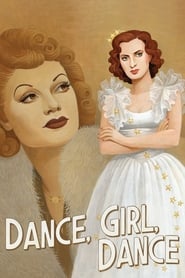 Judy OBrien is an aspiring ballerina...
Judy OBrien is an aspiring ballerina...Dance, Girl, Dance 1940
Judy O'Brien is an aspiring ballerina in a dance troupe. Also in the company is Bubbles, a brash mantrap who leaves the struggling troupe for a career in burlesque. When the company disbands, Bubbles gives Judy a thankless job as her stooge. The two eventually clash when both fall for the same man.
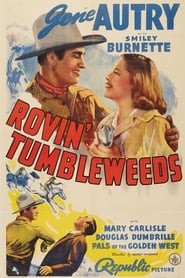 Rancher Autry takes a job singing...
Rancher Autry takes a job singing...Rovin' Tumbleweeds 1939
Rancher Autry takes a job singing on the radio to aid farmers and ranchers whose lands were destroyed by raging floods. Blaming crooked politicians, he goes to Washington and tries to put through a food control bill and finds he has a lot to learn. In this classic release, Gene introduces his immortal theme song, "Back in the Saddle Again," which has gone on to become a piece of American History.
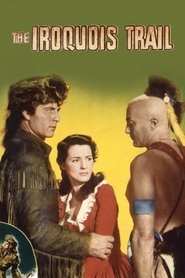 An American scout and his Indian...
An American scout and his Indian... An exgunfighter woos two women while...
An exgunfighter woos two women while...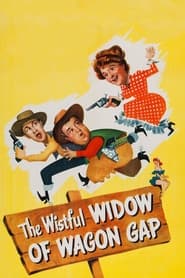 Chester Wooley and Duke Egan are...
Chester Wooley and Duke Egan are...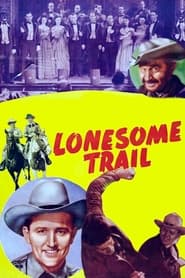 Jimmy and partner Dusty have bought...
Jimmy and partner Dusty have bought...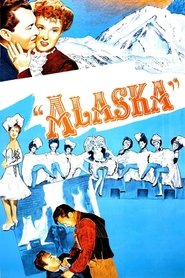 A man who has been framed...
A man who has been framed...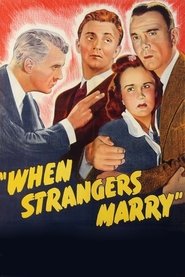 A naive smalltown girl comes to...
A naive smalltown girl comes to...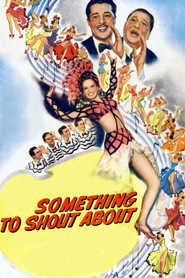 A press agent a composer and...
A press agent a composer and...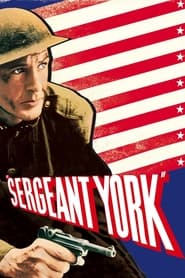 Alvin York a hillbilly sharpshooter transforms...
Alvin York a hillbilly sharpshooter transforms...